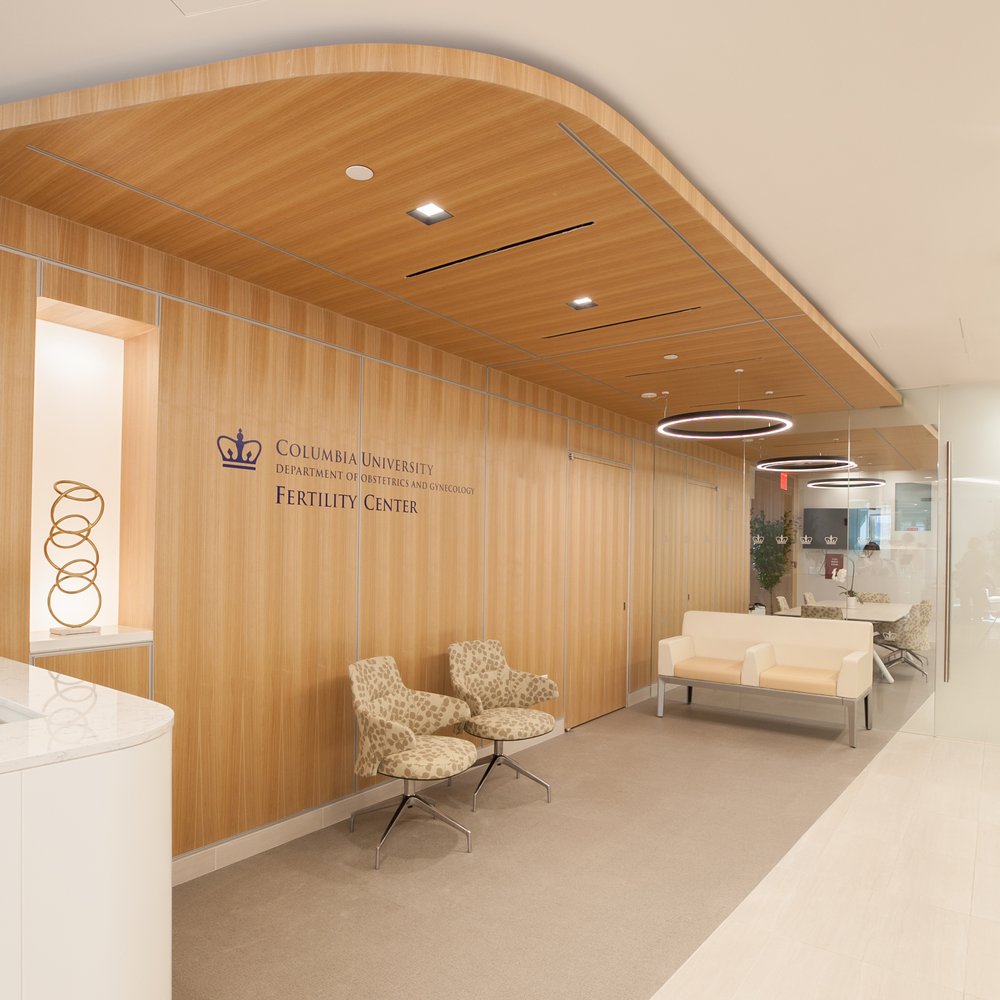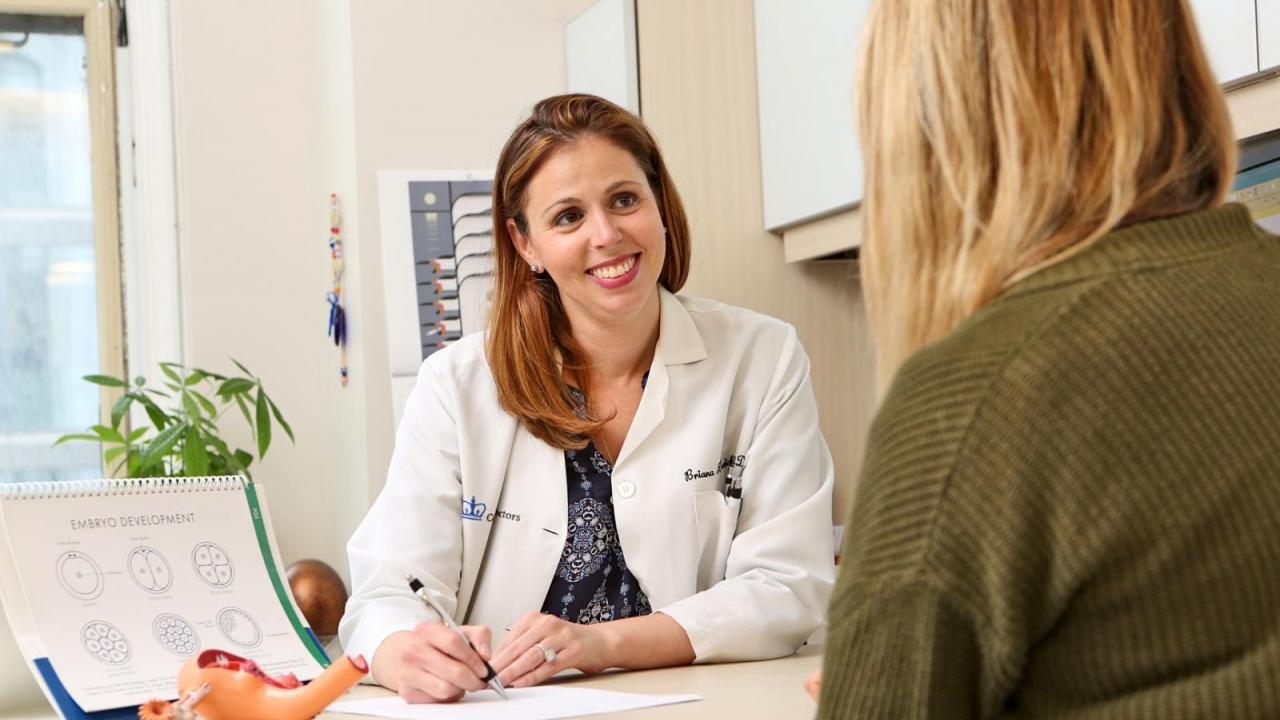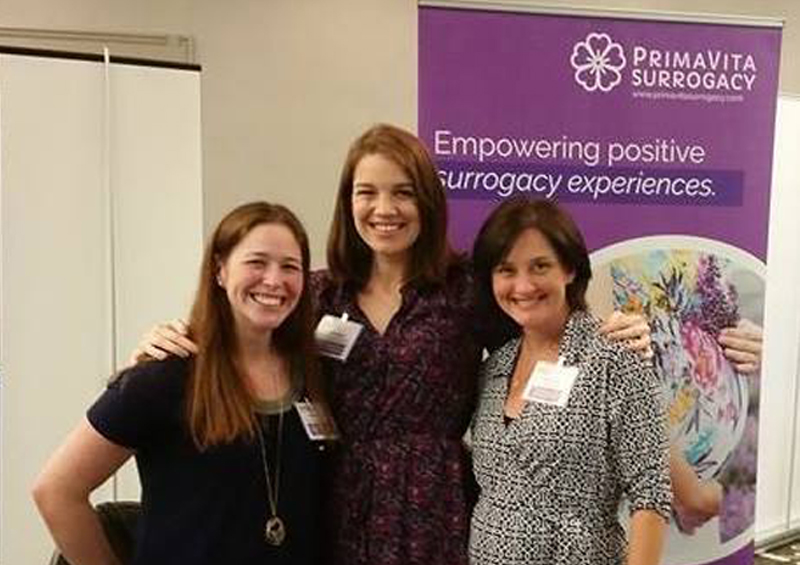Providers Close Up
Exploring Fertility: A Conversation with Dr. Rudick from Columbia University Fertility Center NY
Delve into an in-depth interview with Briana J. Rudick, MD, a renowned specialist in Reproductive Endocrinology and Obstetrics & Gynecology at Columbia University Fertility Center, NY. In this revealing discussion, Dr. Rudick shares her journey into the fertility field and what drove her to specialize in reproductive endocrinology. She has a strong commitment to third-party reproduction and is a fervent supporter of the LGBTQ community, significantly enhancing fertility treatments to help individuals and couples realize their dreams of parenthood. This interview offers vital guidance and perspective for those exploring options in egg donation, surrogacy, and IVF treatments.
This article features Dr. Briana Rudick, a renowned fertility specialist at Columbia University Fertility Center, where she directs the Third Party Reproduction Program. Dr. Rudick brings a wealth of experience and dedication to her role, offering comprehensive care across all facets of infertility, including ovulatory disorders, endometriosis, and fertility preservation.
With a background that includes a residency in Obstetrics and Gynecology at the University of Pennsylvania and a fellowship in reproductive endocrinology and infertility at the University of Southern California, Dr. Rudick is well-versed in the nuances of reproductive health. Her board certification in Obstetrics, Gynecology, and Reproductive Endocrinology and Infertility underscores her expertise.
Actively involved in community events, particularly in support of the LGBTQ community, Dr. Rudick's work emphasizes inclusive fertility treatments such as fertility care for same-sex couples, co-maternity, egg donation, and gestational surrogacy. This interview not only preserves the authenticity of Dr. Rudick’s insights but also offers crucial guidance and perspective for those considering options in egg donation, surrogacy, and IVF treatments, reflecting the progressive strides made under her leadership at the clinic.
Starting at the Beginning: What Inspired You to Become a Fertility Doctor?
I think I always knew that women’s health was in the cards for me; I had many ob-gyns in my family to look up to growing up. I never knew I wanted to specialize, though, until I was in medical school. One of my friends was diagnosed with a rare malignancy. When she found out her diagnosis, the first words out of her mouth were, “Am I going to be able to have kids?” I told her yes, and we scheduled her an appointment with a fertility doctor so that she could preserve her fertility before getting cancer treatment. She has a beautiful family now.
Third-Party Reproduction: My Passion Within My Field
Third-party reproduction is my passion within my field - as an LGBTQ advocate, I feel that the advances in family building for our LGBTQ patients have been a long time coming. I grew up at a time when being gay and having a family was not always possible nor talked about, and it never made sense to me. So now I’d like to do whatever I can to make it possible.
Looking at the Egg Donation and Surrogacy Medical Field: What Changes Have You Observed Over the Years, and What Do You See for the Future?
Many advances have already been made with IVF technology to make egg donation and surrogacy both more effective and safer. I think that overall, both of these have become less taboo and more talked about. We have more data on neurodevelopmental outcomes from children born from donor eggs, all of which looks very reassuring. As our society grapples with the concept of nature vs nurture, and we realize that it is really an interplay of both, egg donation has become more acceptable to many. For some of our patients, it is the only option. Surrogacy has also grown, although I still think there are steps we need to take to make it a safer industry. And I’d like to see more long-term monitoring of egg donors, both medically and psychologically.
What Sets Columbia University Fertility Center NY Apart and Makes It Unique?
“Beyond amazing” is what we strive for. We are very much a boutique clinic, able to individualize for our patients while having the benefits of an academic center. So it’s the best of both worlds. When we need the expertise of another ob-gyn in our department, whether it is gyn surgery or maternal fetal medicine, they are right there. So the potential for collaboration is endless. This means we can handle complex cases from a medical perspective.
From an ideological perspective, our motto is “always be improving,” which we are continuously doing! Innovation is strong here, whether it is figuring out less painful ways to draw blood, or figuring out extra alarm systems to keep frozen embryos and eggs safe. We love helping to build families and we believe in our mission in part because we function like a family here. We have an amazing team!
In the Rapidly Evolving Field of Reproductive Technology, How Does Columbia University Fertility Center Stay at the Forefront of Innovation and Patient Care?
We are proud of maintaining our high success rates especially given that we accept patients regardless of prognosis. Staying at the forefront means streamlining everything from the front desk to our medical assistants, to our nurses and care coordinators, to our endocrine lab and embryology lab.
We evaluate every step of a patient’s journey here and we are deliberate about everything that we do - our choices are deliberate. We practice using evidence-based medicine, but we are still able to individualize based on what makes patients feel comfortable.
It’s a good balance between the two. When it comes to third-party reproduction, we take extra care to make sure that we are in FDA and DOH compliance, and we keep strict ethical boundaries.
There are competing interests sometimes with third-party reproduction. Everyone needs a voice, the egg donor, the gestational carrier, and the intended parents.
Can You Share Some Advice or Tips for Intended Parents Considering Stopping IVF Treatments and Seeking Help from an Egg Donor or Surrogacy?
The emotional leap to using an egg donor or a surrogate is a big one. Everyone has their own journey. Everyone needs their own form of closure before moving in that direction. A good fertility team will be with you regardless of which decision you make and will support you while giving you guidance. I think this is where we rely more upon our mental health specialists as well - they are integral in helping patients to make this transition.
What Are the Common Mistakes That Intended Parents Tend to Make in Their Egg Donation Journey, and How Can They Avoid Them?
I think because of an overall lack of control in the fertility process, sometimes patients try to control too much in selecting their donor. I would instead encourage patients to focus on what is most important to them and to not underestimate how large of a role “environment” really plays. When making a donor egg “wish list”, our team encourages couples to actually describe each other so that they can identify what is most important to them.
Some Intended Parents Debate Whether to Use Fresh Egg Donation or Frozen; Do You Have Any Recommendations?
I think the data is showing that fresh has an advantage in terms of pregnancy rates overall - and I think the potential for family building with more than one child is higher with fresh eggs. There is a lot of variability from egg thaw to egg thaw which we don’t have control over - we are ranked among the highest for egg thaw success rates with the egg banks that we are partnered with (the blastocyst award) - but even with high success rates, we still see a fair amount of variability. If going the frozen donor egg route, I’d advise getting some kind of guarantee if possible. Frozen donor egg success rates once we get an embryo are similar though, and this tends to be the less expensive option of the two.

Some Intended Parents Want to Have Genetic Tests for Their Embryos, While Others Fear Potential Damage. What Would Be Your Recommendation?
PGT-A testing (or screening embryos genetically for an abnormal number of chromosomes) has not been shown to improve success rates in the donor egg population because most of the embryos coming from donor egg are normal with this testing. So it may just be telling us something we already know with the added manipulation of the embryo.
That said, a good percent of our patients still do it for various reasons - maybe they desire sex selection, or in cases where we suspect a uterine issue it can be helpful to eliminate as many variables as possible. Or certainly, for any couples using a surrogate, we like to avoid transferring abnormal embryos as much as possible. So in surrogacy cases, PGT-A is advised if possible.
Is There Any Tip You Can Share With Intended Parents on How to Choose Their Fertility Clinic?
You are building a partnership and part of a team. It must feel that way, otherwise, the clinic isn’t a good match for you. You want to have an open line of communication with your care team and your doctor. If you are worried about something, you want to feel comfortable bringing it up. You want to feel comfortable advocating for yourself. You want to feel like your fertility team has your best interests at heart.
Regarding the Surrogacy Journey, What Is Your Professional Opinion on Single Embryo Transfer Versus Double Embryo Transfer?
We are conservative on that stance and we adhere to the guidelines given by the American Society of Reproductive Medicine. Multiple pregnancy carries not just a higher risk for the babies (prematurity is the biggest risk and is the most common reason for neonatal morbidity and mortality), but also for the gestational carrier - higher risks of hemorrhage, gestational diabetes, pre-eclampsia, the list goes on. So in cases where the standard of care is to transfer a single embryo, we don’t transfer two.
We also don’t believe that it is possible to truly understand what those risks are and what types of complications can ensue until you are in that situation experiencing it. So consenting for a double embryo transfer in these situations is problematic.
What Is Your Professional Advice for Surrogates Who Wish to Undergo the Cycle Without Using Injectable Medications?
I think this is challenging in part because of the legal language in the contracts that you will sign - “no biological way that the pregnancy could be a result of your ovulation” means we have to shut off ovulation. There is only one way to do that, and that is unfortunately with injectable medications. In medicated embryo transfer cycles, we do have data that the miscarriage rate is higher with vaginal progesterone alone as opposed to progesterone injections. But sometimes we do a mix of both to minimize the number of injections.
You’ve Probably Met Many IPs Over the Years and Encountered Many Emotional Stories. Can You Share One or Two That Stayed With You?
There are too many to count 🙂. I think one of the things that continually amazes me is how the kids born from egg donation really look like their biological mother, genetics aside. I have definitely had patients who have been with me for years fighting for treatment to work, fighting for insurance to pay, or patients who were told “no” by many clinics before they came to us.
Those are incredibly rewarding when they work…and devastating when they don’t. I think the thing that really sticks with me for our gestational carrier cases is the feeling in the procedure room on the day of embryo transfer.
Many times the gestational carrier and her partner are there, the IPs are there - it has a party-like atmosphere and it feels hopeful and exciting. It’s my favorite kind of embryo transfer to do.
Closing Thoughts
Dr. Rudick's deep commitment to fertility care, combined with her clinical expertise, underscores the essential role of empathy and innovation in reproductive medicine.
At Columbia University Fertility Center, the integration of personalized patient care with advanced medical practices ensures that individuals and couples receive support tailored to their unique journeys toward parenthood.
As the landscape of fertility treatments evolves, Dr. Rudick and her team are dedicated to refining their approach to meet both the emotional and physical needs of their patients, continuing to make meaningful impacts in the lives of those they serve.





